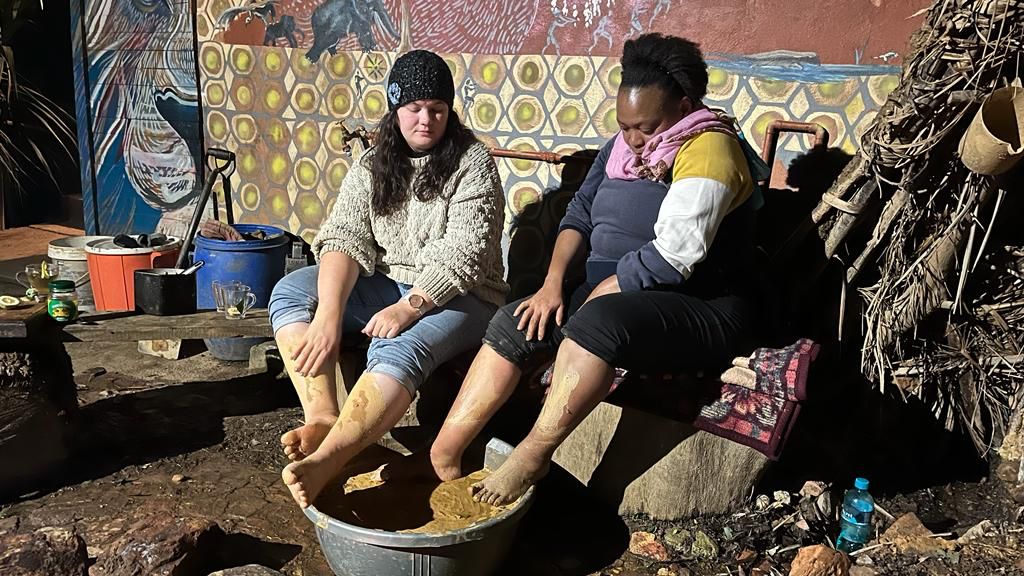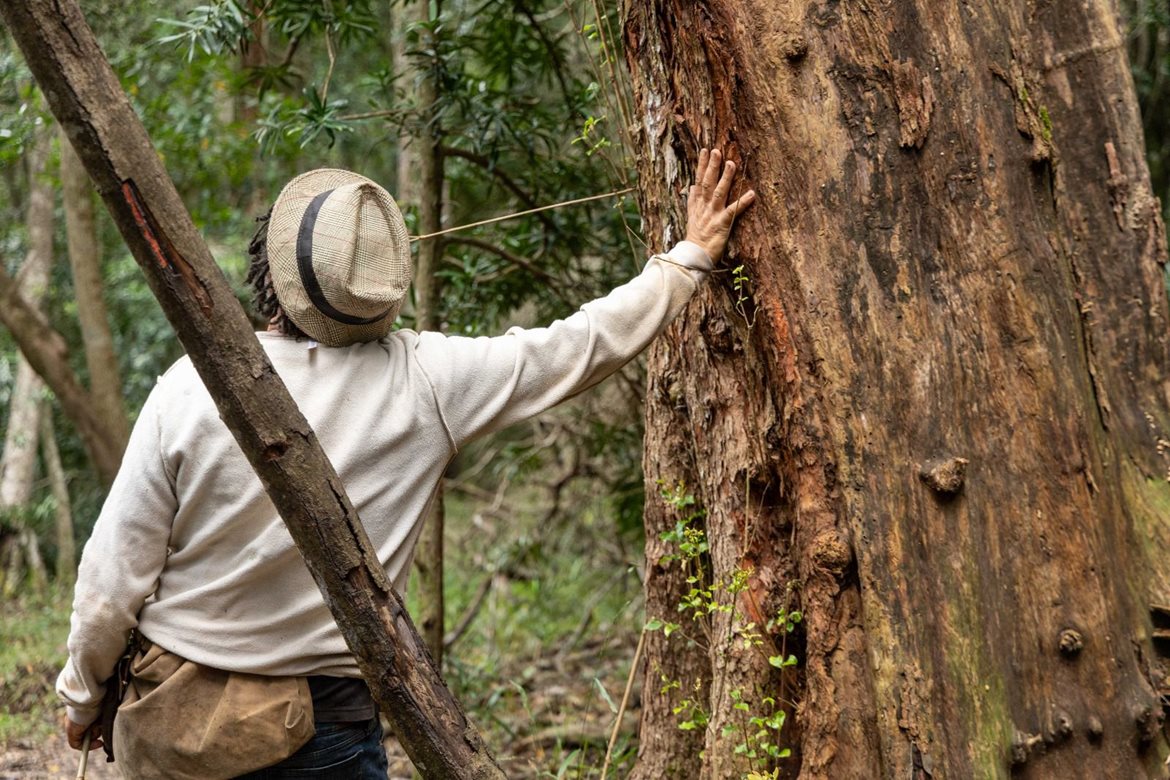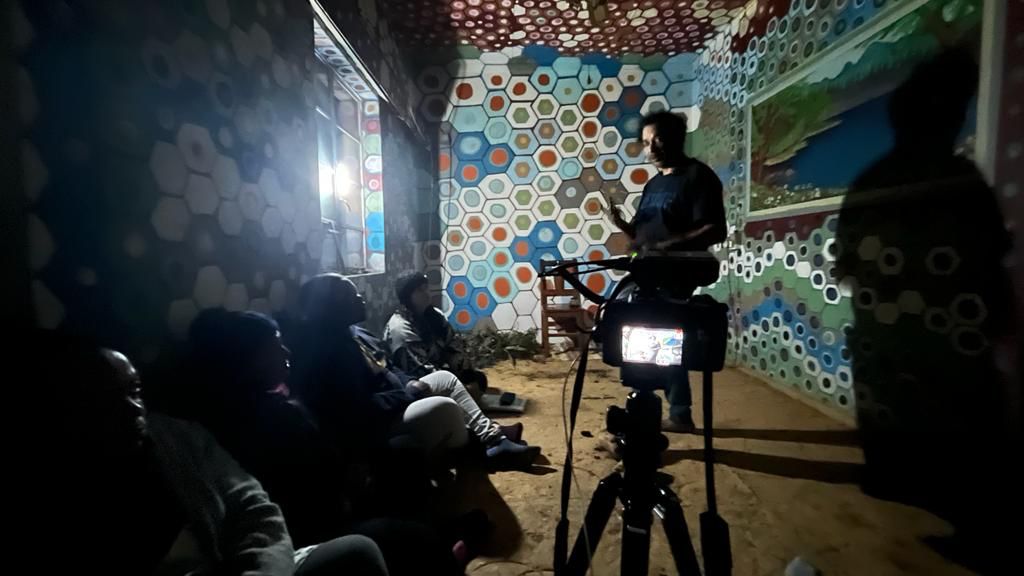Capaldi, Dopko and Zelenski (2014) argues that being in nature and having contact with the natural world is beneficial in enhancing mood, cognition and health. While conducting fieldwork in the Western Cape near the Outeniqua mountains, we encountered an individual who had a deep connection to nature. The participant described his ‘ecological self’ as he described nature as part of who he was. He shared his awareness of himself as an integral member of the wider biotic realm, connected to the mountains, the moon, and to honey bees.

Humans are not bigger or supreme over nature but rather together at the same time and place connected through the elements as each indigenous group represented one of the four elements. The participant shared that “in the Songkhrais is the Korana, Namas, Bushmens and the Khoi Khoi, each one is a different element, Khoi Khoi is fire, so I'm fire. Namas is water, Bushmens is earth the Korana is wind”. He further added, “The sea is a mother, a mother does everything. In the sea, there's no stronger or weaker. Yes, it just has more salt, the herbs that are by the sea, the sea sand, the rocks, the crystals. I can earth you, then you're connected to the sea, then you can feel, man. But certain crystals, like 13. Because there are 13 full moons, we don't work in years, the cycle. Yes, so women have the same. And the moon must also, yes, along with the sea”.

He spoke about the Outeniqua mountains which he referred to as the “land burdened with honey or the translation for the mountain was actually like the mother bee dying, or then the bees cuddle her to death, yes, they suffocate her with love. The indigenous forest surrounded the mountain. They removed the indigenous forest and they plant pines…They wiped out thousands and thousands of hectares from 1945. They planted the pine trees, so they took all those indigenous lives away, the animals, all the birds, the insects, the bees. Because nothing grows on the pine tree, you can't even make love under a pine tree. The pine tree is not to be hugged”. Feeling connected to nature is about feeling an affinity for, and a belonging to a wider, deeper realm of being. We heard from the participant that from the top of the mountain to the depths of the sea he can find healing and that the indigenous people were “displaced from the lands, and that connection was taken away”. From this, we realise the difficulty in sustaining a close relationships with nature as present day challenges reduce the connection to nature, but the participant shared that it is necessary to grow this connection to nature and nurtured at every in every stage of your life.

References
Capaldi, C., Dopko, R. & Zelenski, J. (2014). The relationship between nature connectedness and happiness: A meta-analysis. Frontiers in Psychology. 5. DOI 10.3389/fpsyg.2014.00976.
Furness, E. (2021). Understanding the lived experience of connection to nature. Conservation Science and Practice,3:e440.DOI https://doi.org/10.1111/csp2.440
Knepple Carney, A. (2018). How Connectedness to Nature Relates to Well-Being over Time. West Virginia University. Graduate Theses, Dissertations, and Problem Reports. [Online] Available at: https://researchrepository.wvu.edu/etd/5992 (Accessed 18/02/2023).